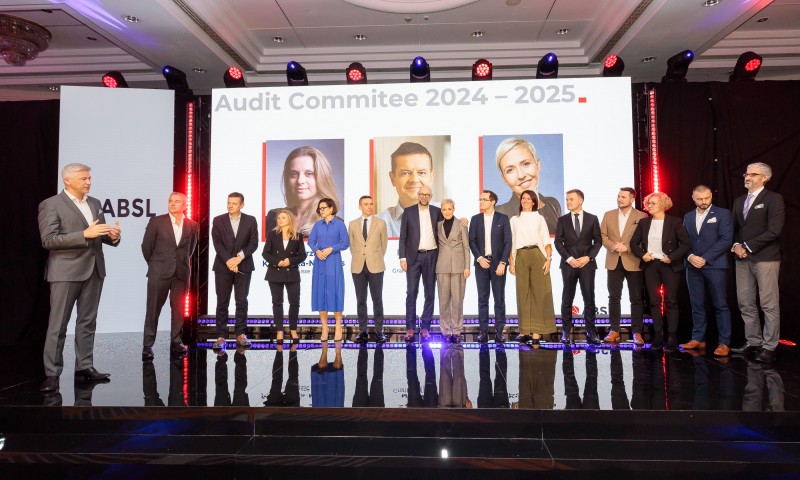Talent attracts global investment
According to ABSL's annual report 'The modern business services sector in Poland 2023', 40 per cent of companies in the sector perceive the availability of talent in Poland as the primary barrier to growth and inflow of foreign direct investment. More than 50 per cent believed that the talent shortage would be significant in the next five years, and would require them to adjust their sourcing strategies. ABSL has published the “ABSL Talent Strategic Foresight Report 2023”, which aims to prepare organizations to proactively shape the future of a sector that currently employs 435,300 people, with 364,000 working in centers owned by foreign investors.
The Association of Business Service Leaders (ABSL) brings together over 250 of the world's largest companies in the sector and is one of the largest employers in Poland. Access to employees in a strategically important sector will have a significant impact on economic development over the next five years. During this period, the labor market will undergo political, and therefore legal and economic changes. In order to maintain the sector's competitiveness in the global market, systemic solutions are needed that require cooperation between companies, governments, NGOs, and educational institutions.
Competence attracts foreign investment
Analyses by the United Nations Conference on Trade and Development (UNCTAD) and the World Economic Forum (WEF) clearly show that countries with higher levels of education and a more skilled talent pool tend to attract more FDI projects. With the transformation of the business services sector towards knowledge-based roles, the availability of a highly skilled workforce is a key factor for growth. As the ABSL report points out, given the qualitative change in the services offered and the degree of internationalization, soft skills, management skills and the ability to work in a diverse environment are becoming as important as language skills and knowledge of technology.
-What could help Poland to organically grow its current portfolio of services and attract new companies is to invest in the development of entrepreneurial and digital competencies needed in an era of accelerating digitalization and artificial intelligence. This is our common challenge: to provide employees with the skills of the future and to convince investors that we offer excellent human resources despite unfavorable demographic conditions. - emphasizes Anna Berczyńska, ABSL Vice President, Talent.
One strategy to address the skills gap identified in the report is to provide in-house training to upskill or re-skill existing employees. In the coming years, internal mobility will become increasingly important to help existing talent adapt to new roles and provide them with the skills and training they need to thrive.
Remote working a key employee value in the sector
Talent acquisition and management is one of the most complex and multi-dimensional aspects of the business services sector. Accurately aligning the employee value proposition and listening to the needs and expectations of different functional, generational, and social groups is a key determinant of how successful companies are in attracting talent.- reports Daniel Wocial, co-author of the Talent Report, managing director, iSourceTec.
In addition to salary and benefits, the ABSL report identifies flexibility to work anywhere, anytime, including remotely; meaningful work; internal development opportunities; learning new skills; and organizational sensitivity and sustainability issues, including ESG, as the top values sought by employees.
Remote working remains an attractive proposition, especially for highly skilled employees. According to the ABSL report, hybrid working (57.2 per cent) was the dominant way of working in business services companies in 2023. More than 45 per cent of companies recruited employees from across Poland and a further 13 per cent from anywhere in the world.
Less economically active groups are an opportunity for the sector
The ABSL report points out that one strategy for attracting talent is to activate new groups of employees who have been underrepresented in the business services sector.
The flexibility of remote working opens up access to employees who were previously out of reach. This applies to people from smaller towns and cities in Poland as well as from European Union member states and partner countries in Asia and Africa. To make better use of the competence potential from abroad, it is important to strengthen joint activities of the sector with universities in Poland, to create a combined study and work offer and to jointly develop training programs for graduates to perform various functions in companies in the sector.
Another opportunity for the development of the sector is the activation of less economically active groups in the Polish market (young people, people without professional experience and seniors). Currently, the business services sector employs 18 per cent of people up to the age of 26, while the share of people over 55 is 7.6 per cent.
Studies show that by the end of 2030, there will be a shortage of around 85 million workers worldwide, and one in six people will be aged 65+. The current economic situation and high inflation are causing older workers to delay retirement. Many of them say they really need their work in their lives and that it is much more than just a source of extra income. It is about a sense of purpose, social contact, and a sense of belonging. The 55+ group represents a huge potential for meeting challenges in the labor market.- explains Edyta Janas, Sales Director, Randstad Sourceright, EMEA.
The ABSL Talent Strategic Foresight Report 2023 material is available at the link.
The report uses data and analysis from companies such as Colliers, GoodHabitz, Mercer and Randstad, among others.









